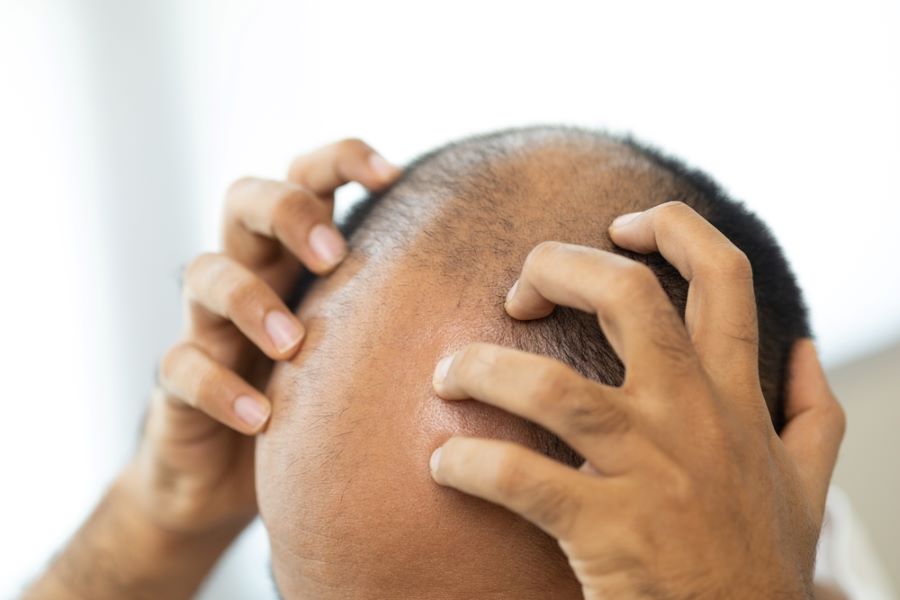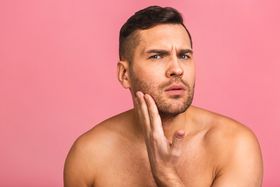Reasons Your Hair Is Falling Out—and What to Do About It
Published July 30, 2022.

Hair loss can happen to both men and women, and it’s something that most of us want to avoid or treat as soon as possible. There are many different causes of hair loss, and most of them can be dealt with.
Here are the most common reasons your hair is falling out and what steps you can take to handle the situation.
Common Causes of Hair Loss
The following causes of hair loss are the reasons for most people’s hair loss problems, and chances are you’ll find the reason for yours as well.
Genetics
The most common cause of hair loss worldwide is hereditary hair loss. It can happen to men and women and at any age as well. This kind of hair loss happens because you inherited genes from your parents that cause hair follicles to shrink and eventually die in a process called miniaturization.
There are ways to treat this kind of hair loss, fortunately. The sooner you start treatment, the better.
Age
It is inevitable for most people that they will suffer hair loss when they grow older. This happens because your hair follicles stop growing hair when you’re old. At this point, your hair will also start to lose its color, and some women will notice that their hairline starts to recede.
If you start treatment early, you can regrow what you’ve lost.
Hormonal Imbalance
Sadly, women often suffer hormonal imbalances, and one of the symptoms is hair loss. Typically, the cause is PCOS (polycystic ovary syndrome), which leads to cysts on the ovaries.
There are various treatments that will relieve the symptoms of PCOS, including hair loss.
Hair Care
Excessive hair treatments can negatively affect your hair. If you’re relaxing your hair, perming it, or coloring it too much, you can cause serious damage. Wearing your hair in tight hairstyles can also put stress on your hair. Over time, this kind of damage can result in hair loss.
If you change how you treat your hair, you can prevent hair loss, but note that if a hair follicle has been damaged, it cannot grow new hair.
Scalp Infection
Scalp infections can lead to inflamed areas and hair loss. Fortunately, treatments for these infections will lead to healthy hair regrowth.
Cancer Treatment
Radiation treatment, which is used for cancer, can often lead to serious hair loss within a few weeks of starting treatment. However, hair should start to grow back a few months after cancer treatment has been finished.
When Is Hair Loss Serious?
Hair loss, in most cases, isn’t a serious health issue. However, there are situations in which you should consult a doctor if the hair loss is part of other symptoms that could indicate more serious health problems.
Here are some signs that your hair loss is more than just dying hair follicles:
- Loss of eyebrow hair and/or eyelashes
- Constantly feeling sluggish
- Loss of appetite
- Muscle aches
- Brittle nails
- Body or face rashes
Can You Treat or Prevent Hair Loss?
Yes, your hair loss (in most cases) doesn’t have to be permanent. You can also prevent hair loss quite effectively.
Medication
You can take Biotin supplements or other supplements like Hairprin. There are many medicines to treat hair loss caused by diseases or an illness. However, if your hair loss is genetic, consider chatting to your doctor about DHT blockers like finasteride.
Hair Transplant Surgery
You can get hair transplant surgery if your hair loss is centered around the top of your head. A hair transplant surgeon will remove hair from one part of the head with healthy growth and transplant it to the bald area.
Changes to Lifestyle
Changing your lifestyle can help prevent hair loss, and changing how you take care of your hair can especially make a difference. Eating healthy and protecting your hair against sun damage can help prevent loss in the future.
Conclusion
There are many different causes of hair loss, some of which are treatable and some that are not. However, there are various home remedies and medical treatments that can reduce hair loss or even regrow lost hair.
Additionally, take a look at the following posts that may help you treat your hair loss:







